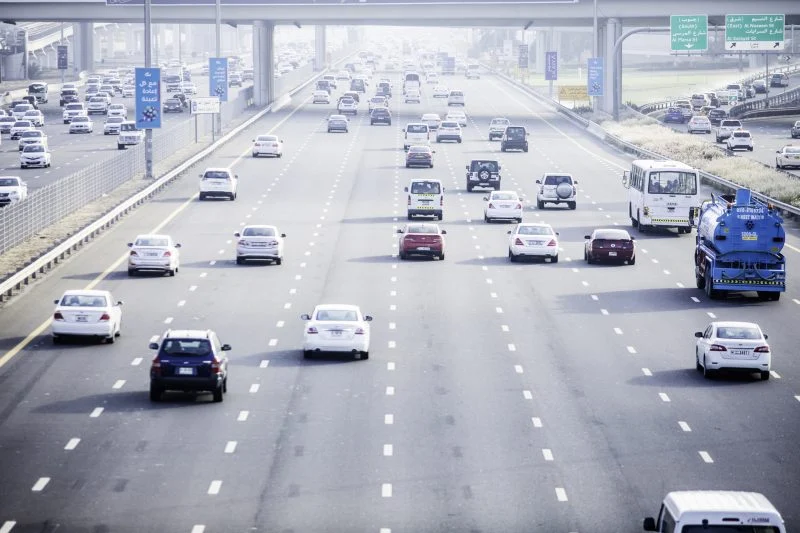
Image: Getty Images
In a significant legislative update, the UAE Government has issued a federal decree-law on traffic regulation, marking a step forward in the modernisation of the UAE’s transport systems and road safety measures.
The updated law addresses the rapid development of transportation technologies worldwide, placing a heightened focus on self-driving vehicles, electric cars, and personal mobility devices. This aligns with the UAE’s vision of utilising advanced road networks and tech-driven mobility solutions.
Key aspects of the decree-law include the establishment of updated vehicle classifications and the integration of modern road technologies.
Specific emphasis has been placed on regulatory frameworks for the licensing, inspection, and operation of self-driving vehicles, which will be governed by detailed protocols determined in an upcoming cabinet resolution.
The law mandates that the UAE’s licensing authority develop online platforms and smart applications to facilitate the issuance of licenses and permits, aligning with the nation’s push for digital solutions in government services. These new programmes, authorised by the Minister of Interior or the relevant licensing authorities in each emirate, will enable both private and commercial operators to gain approvals more efficiently.
In a landmark move, the decree also establishes a ‘Federal Traffic Council’ whose scope and responsibilities will be defined by the cabinet. This council will be tasked with overseeing new transportation initiatives and addressing evolving road safety challenges.
Enhanced traffic and safety regulations
The decree introduces a range of safety regulations covering all types of vehicles, their drivers, and pedestrians. For instance, pedestrians are prohibited from crossing roads with speed limits exceeding 80 kilometres per hour, with violators bearing full civil or criminal liability for any resulting incidents. Vehicle stoppage on roadways or curbs for repairs is also prohibited, with significant penalties in place for non-compliance.
New requirements for issuing a driving license are also included. License applicants must be at least 17 years old, and driving instructors must hold valid authorisations and conduct training responsibly. Licensing authorities now have the power to suspend or cancel licenses if a driver is deemed medically unfit.
Additionally, the decree prohibits unauthorised modifications to vehicles, including changes to the chassis, engine power, or colour, without prior approval from the licensing authority. The law further protects vehicle owners by ensuring that insurance policies cannot exclude coverage for damages arising from the vehicle’s use.
UAE Government issues Federal Decree-Law on traffic regulation, which aims to keep up with the rapid evolution of transportation worldwide#UAEGOV pic.twitter.com/AD8VgGgswn
— UAEGOV (@UAEmediaoffice) October 25, 2024
Deterrent penalties for violations under the new traffic regulation decree-law
The decree-law introduces deterrent penalties to address a variety of offences, underscoring the UAE’s commitment to road safety. These include:
- Licence plate misuse: Imprisonment or a fine of no less than Dhs20,000.
- Driving under the influence: For alcohol-related offences, penalties range from a minimum of Dhs20,000 to Dhs100,000 and imprisonment. For narcotics or psychotropic substances, penalties increase to a minimum of Dhs30,000 and a maximum of Dhs200,000, with imprisonment.
- Driving with a suspended licence: Punishable by up to three months in prison or a fine of at least Dhs10,000.
- Accident evasion: Leaving the scene of an accident can result in imprisonment of up to one year and fines between Dhs50,000 and Dhs100,000.
- Fatal accidents due to negligence: Imprisonment and a minimum fine of Dhs50,000 apply, with additional penalties if the incident occurs under aggravating circumstances, such as during dangerous weather conditions.
These stringent penalties reflect the UAE’s focus on reducing road accidents and encouraging responsible driving practices.

